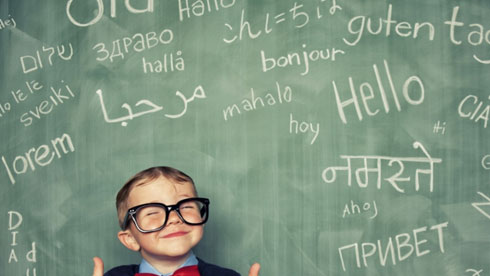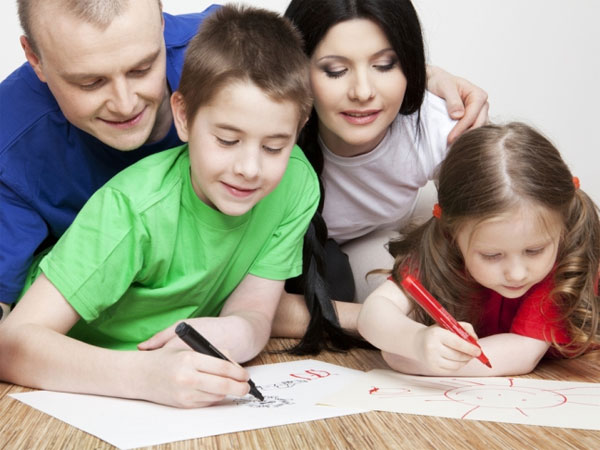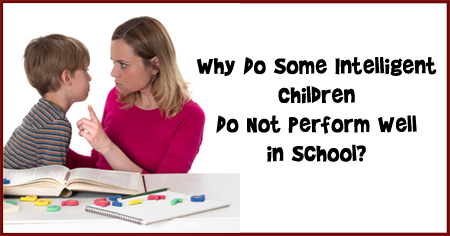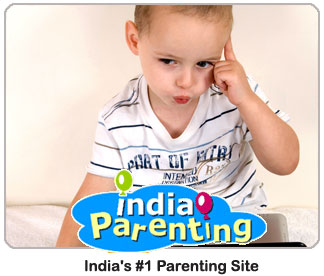 Encouraging children to learn two or more than two languages can help them a lot in future. Let us take a look at the benefits of raising a bilingual or multilingual child.
Encouraging children to learn two or more than two languages can help them a lot in future. Let us take a look at the benefits of raising a bilingual or multilingual child.Bilingual means the ability to converse in two languages perfectly and multilingual mean the ability to converse in more than two languages. Most kids in India are multilingual these days. They are perfectly conversant in their
mother tongue, in English, in regional language and the national language too. This is not the case in many countries like USA and UK. Kids there learn only English and are hardly in touch with their mother tongue or some other language.
It is said the more languages one learns the more liberal they become. Culture and language are intertwined and knowing a language means knowing the culture. Here are some other benefits of raising bilingual or multilingual children.
1. Heritage
If a child speaks their mother tongue it implies that they are preserving their native heritage. They become one with their roots. A lot of heritages and languages have faded away because no one spoke them. If we think of native languages like Bhojpuri, the young generation has more affinity to Hindi. Over time such native languages disappear.
It is important that children learn their native language also as it helps them to communicate with their parents and other relatives. Many times it is been seen that the child knows English while the parents only their regional language, creating a communication gap. If children are not able to communicate with their near and dear ones it is a shame.
2. It is Practical
Being bilingual or multilingual has many practical benefits. If you look at translators you will understand how practical such a quality is. Further, being able to communicate in two or more languages means wider arena. It gives you a one up over others. You are able to access more opportunities of education and work. These days all official matters are in English. If one person cannot speak English it becomes difficult for them to attend
school or get jobs later. Similarly if one does not know their native tongue they cannot even buy food from local stores.
3. Wider Perspective
As said before, being bilingual or multilingual means you imbibe the traditions of two or more cultures. It helps you broaden your mindset. You readily accept things without suffering a mental dislocation. It has been seen that more languages a person learns the broader their mentalities are. It was only after learning English that our native fathers could learn about revolution and freedom. You learn about the other cultures and your thoughts are not restricted to only what you see around you.
4. Enhances Brain Power
Research has shown that bilingual or multilingual children have
better brain functioning. Being able to use two or more languages makes a child more efficient. They are able to speak one language without mixing it up with another. That requires some brain power. The kids are better at paying attention and multitasking. They are also more efficient compared to other kids.
They can easily switch from one task to another like they switch between languages. Bilingual or multilingual kids are more apt at storing huge amounts of information and recall them. Their brains have been trained due to learning of two or more languages. They also have a wider knowledge of things. They easily accept others without judging them. They can easily accommodate and adjust with others as compared to monolingual kids.
5. Learn other Languages
Many times for personal or professional reasons kids might need to learn a
foreign language. It has been found that bilingual or multilingual kids learn a new language quicker than monolinguals. They easily assimilate another language and soon become fluent in it.
Being bilingual is extremely necessary in today’s world. International relationships need to be fostered for peace and harmony. If children, who are the future, can easily accept and accommodate other nations and cultures there will be no violence in the world. It is recommended that parents teach their kids at least one extra language.
What are the advantages of raising a bilingual or a multilingual child? Are there any disadvantages of teaching many languages to children? When can children start learning a foreign language? Discuss here.











 Encouraging children to learn two or more than two languages can help them a lot in future. Let us take a look at the benefits of raising a bilingual or multilingual child.Bilingual means the ability to converse in two languages perfectly and multilingual mean the ability to converse in more than two languages. Most kids in India are multilingual these days. They are perfectly conversant in their
Encouraging children to learn two or more than two languages can help them a lot in future. Let us take a look at the benefits of raising a bilingual or multilingual child.Bilingual means the ability to converse in two languages perfectly and multilingual mean the ability to converse in more than two languages. Most kids in India are multilingual these days. They are perfectly conversant in their 

















